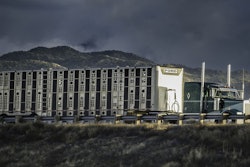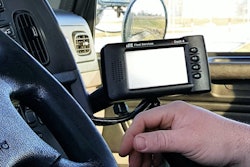The Federal Motor Carrier Safety Administration announced Monday it has received three requests for exemption from various hours of service regulations.
The American Bakers Association and International Dairy Foods Association filed a joint petition requesting a reprieve from maximum driving time requirements for drivers delivering baked goods and milk products during periods and in areas anticipated to be impacted by a natural disaster or emergency situation.
The two groups proposed that the exemption would only apply during periods of disaster preparation in anticipation of disaster conditions, noting that it would allow them to exempt out of certain hours rules before an official state of emergency is declared. They add that the requested exemption “should allow suppliers to use reasonable judgement based on early warning announcements, such as hazardous weather announcements.” Additionally, ABA and IDFA say experience has shown that HOS restrictions “often become a limiting factor at the expense of effective emergency preparations.”
FMCSA is seeking public comment on the request through Jan. 17.
The Association of American Railroads and American Short Line and Regional Railroad Association (AAR/ASLRRA) also requested an exemption from the maximum drive time regulations. The groups say the exemption would enable railroad employees to respond to unplanned events that occur outside or extend beyond normal work hours.

Specifically, the groups are asking FMCSA to allow railroad employees responding to derailments, rail failures, train collisions, storm-related events and more to be exempt from the 14-hour driving rule and the 60- and 70-hour limits in 7 and 8 days, respectively.
The groups say employees use commercial vehicles as mobile supply facilities, transporting personnel, equipment and material for the driver to use at worksites.
Additionally, the groups say a driver responding to an unplanned event that exceeds his or her 14 hours by five hours or less would be give five additional consecutive off-duty hours for a total of 15 before going back on-duty, and a driver that exceeds the 14-hour limit by between five and 10 hours would be given 10 additional off-duty hours for a total of 20 before returning to duty. Finally, drivers who exceed the 60- or 70-hour weekly limits would be given 34 hours of rest before driving again.
Comments can be made here through Jan. 17.
Finally, North Shore Environmental Construction is seeking a break from the 14-hour rule for drivers providing direct assistance to environmental emergencies or potential emergencies.
North Shore says it is contractually required to provide direct assistance to environmental emergencies, which it defines as a sudden threat to public health or the well-being of the environment arising from the release or potential release of oil, radioactive materials or hazardous chemicals into the air, land or water.
The company says its drivers also conduct industrial maintenance, spill response, sampling, lab packing and waste management, adding that finding drivers with these additional skills is a challenge.
Under terms of the exemption, if granted, North Shore drivers’ on-duty period would not exceed four-and-a-half additional hours for initial response; would not exceed a total of eight hours of drive time; would not exceed 70 hours in eight days; would be required to take a full 10 hours off-duty following the duty day; and would be subject to the ELD rule.
Public comments are being accepted here through Jan. 17.










